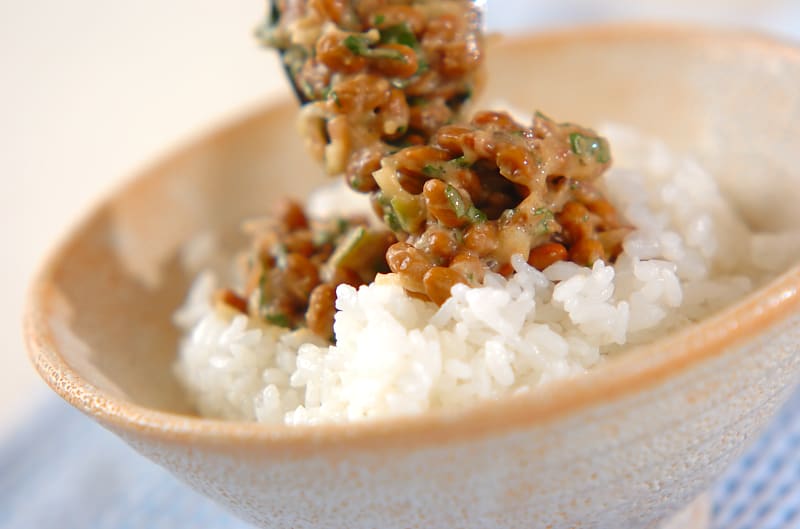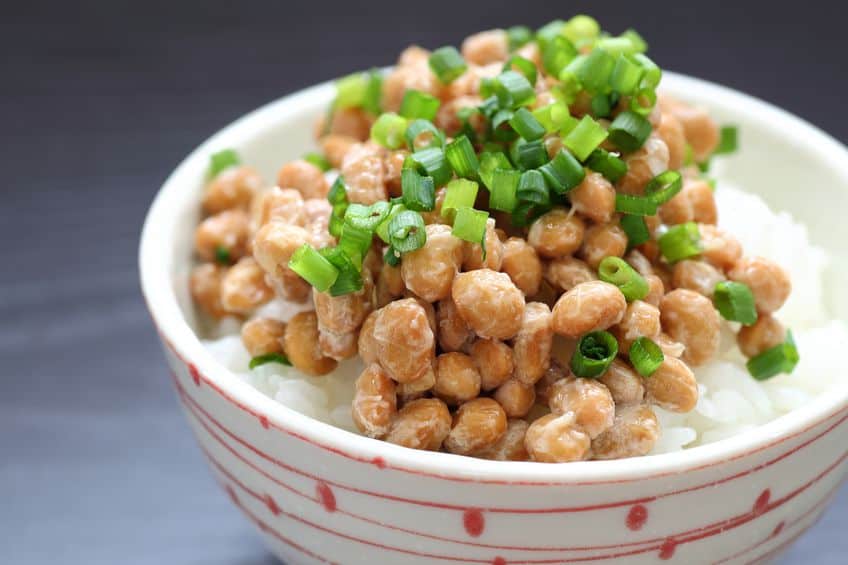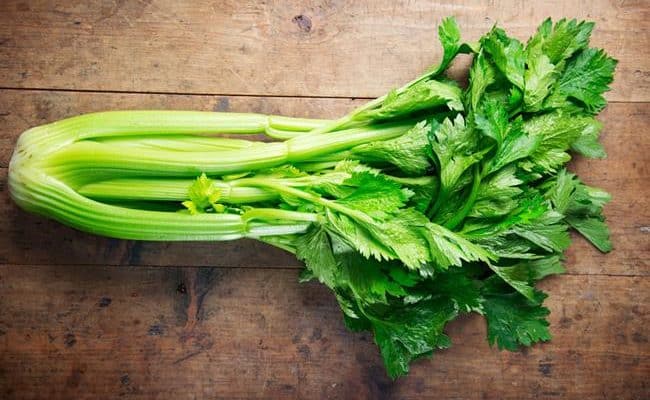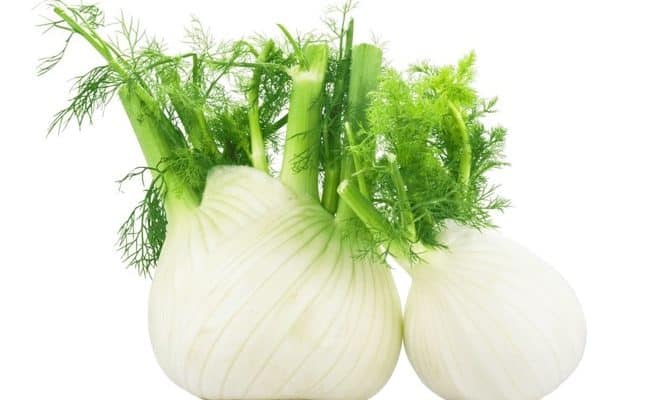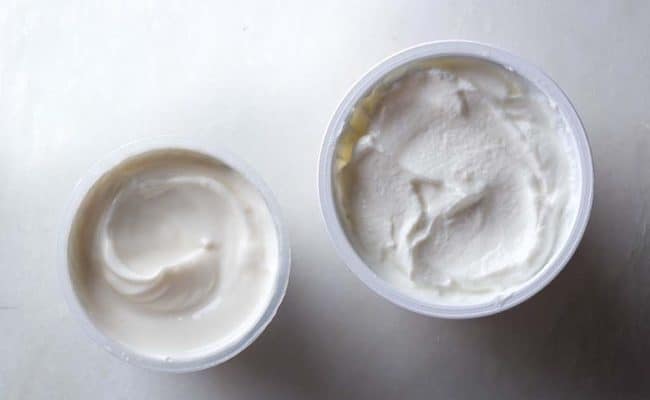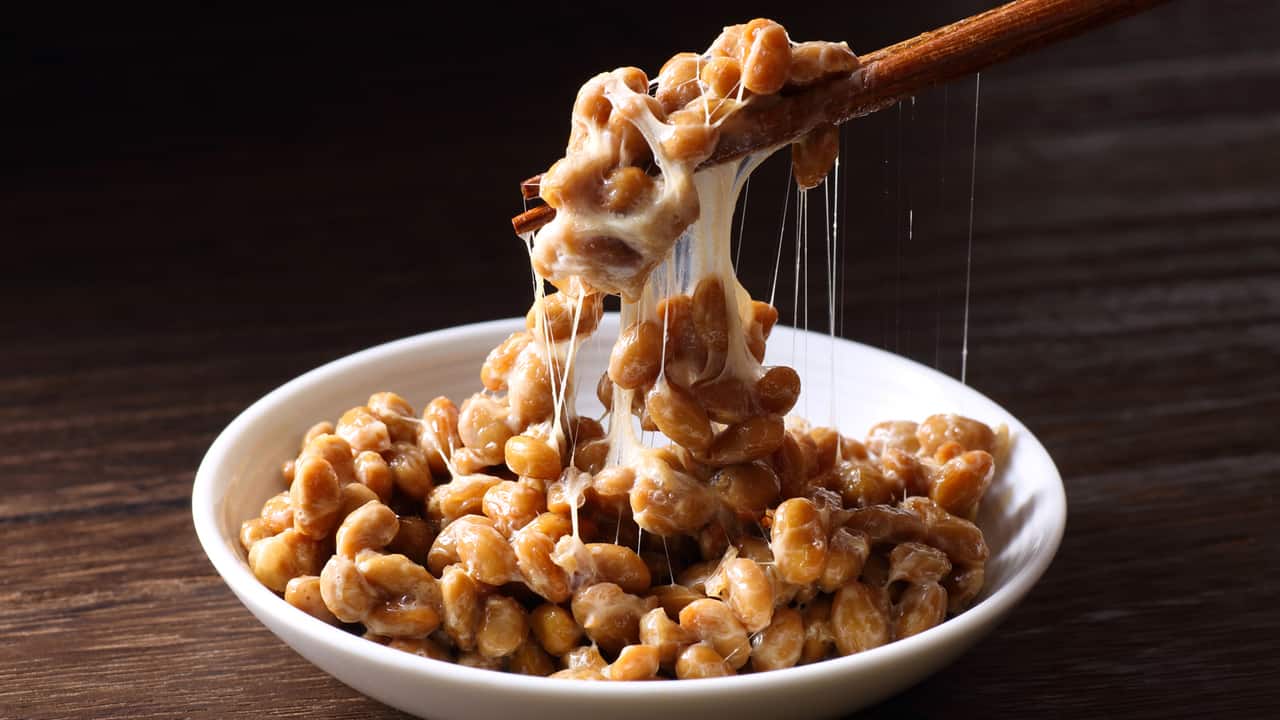
Western societies are just starting to catch on with natto, while natto has been part of traditional Japanese cuisine for centuries. Natto is basically fermented soybeans which can have a mild to pungent taste and somewhat slimy texture.
It is common to eat natto from a very young age in Japan, but if you are just trying it for the first time as an adult it may be an acquired taste.
Like other fermented foods, natto can be a source of beneficial bacteria called probiotics.
Research is still unfolding how probiotics can positively affect human health, but so far research studies suggest probiotics can play a significant role in gut health.
Some studies also suggest probiotics may even influence weight regulation and mental health.
Natto could also have a positive role in blood clotting, bone health and even affect some aspects for baby health if the mother consumes it during pregnancy.
Natto has some promising health benefits, but keep in mind, like with any one food, it is not a cure all.
Are There Any Nutrition Benefits from Eating Natto? Adding in natto to your diet could give you some nutritional benefits, but eating a wide variety of foods is recommended for overall health.
If you haven’t tried natto, give it a try and keep in mind it may take more than once to get used to the flavor and texture.
Healthy bacteria
Fermented foods like kimchi, kefir, yogurt and natto are sources of healthy bacteria, probiotics.
Eating fermented foods to get probiotics is a growing interest because a typical Western diet is low in foods that provide these beneficial bacteria.
The benefit for consuming foods that are a source of probiotics, like natto, is that they can help boost immune protection.
These bacteria stay in the gut and can play an important role in fighting off pathogens.
Constantly eating foods that contain healthy bacteria is needed to get the most effect from probiotics in the gut.
Cells that line the intestinal wall are constantly being renewed, so eating a variety of probiotic sources in the diet is recommended.
Promoting the growth of probiotics in the gut also hinders the growth of harmful bacteria in the digestive tract.
The bacteria in the gut may also impact other aspects of health including: weight regulation, mental health and bone health.
More research is needed for clarifying the full effect gut bacteria has on health.
However, in general, eating more fermented foods is recommended for healthy adults to get more sources of probiotics in the diet.
Blood clotting
In a 2016 TIME article (1), biomedical researcher Dr. Holsworth suggests an enzyme that is a by-product from making natto called nattokinase may be beneficial for lowering risk for blood clots.
Nattokinase can help break down fibrin which is a protein involved with blood clotting.
By helping to break down fibrin, nattokinase can help lower risk of forming blood clots and plaque formation in arteries.
While nattokinase is not used yet in mainstream medicine for preventing blood clots, it may be used in the future if more research shows benefit for this.
Consuming natto may help provide some of the benefits associated with lowering risk for blood clots.
Bone health
One of the benefits from probiotics, which may be surprising, is the effect it can have on bone health.
A 2015 review article (2) suggests since the gut regulates the absorption of calcium and other bone building nutrients, gut health is tied to bone health.
Alterations in the microbiome (bacteria levels in the gut) have been shown to have an impact on bone density.
Dr. Goodman from New York University (3) points out the occurrence for osteoporosis in eastern Japan is lower than western Japan.
Both areas have similar diets except eastern Japan consumes more natto.
Therefore, eating natto may help protect bone density. It could be the affect natto has on gut bacteria and also the fact that natto is high in vitamin K.
Specifically Dr. Goodman suggests natto is high in vitamin K2 which acts as a strong stimulant for building bone calcium levels.
Soy foods and isoflavones
Like all soy foods, natto is a source of isoflavones.
Several studies have shown isoflavones to have anti-carcinogenic effects, but epidemiological studies have shown mixed results for soy intake and risks of certain cancers.
Therefore, some people who have a higher risk for or who have had breast cancer may have concern for adding soy foods to their diet.
However, the American Institute for Cancer Research (4) claims there is not sufficient evidence to fear soy foods increase risk for certain cancers.
If you have questions about consuming natto or other soy foods and how it could influence your cancer risk, speak with your doctor.
A 2014 study (5) looking at soy intake in Japanese women concluded soy intake could have a protective effect against breast cancer.
Eating soy foods in whole form, like natto, is recommended over eating parts of soy from supplements or processed foods (6).
Natto during pregnancy
Could eating natto while you are pregnant be beneficial for your baby?
Research studies continue to unravel how the nutrition of the mother can affect a baby and even later in life.
A 2014 study (7) followed the dietary intake of more than 600 pregnant women.
Researchers were specifically looking at fish, butter, margarine, yogurt and natto intake in the pregnant women.
Researchers found butter intake was associated with an increased risk for baby eczema, but intake of natto was associated with a lowered risk for baby eczema.
Women who ate natto even as little as 2-3 times per week had significantly lower incidences of baby eczema compared to other women who didn’t eat natto.
More research is needed on the effect of eating natto while pregnant, but from this study it appears natto may have a protective role in Japanese women in lowering risk for baby eczema.
